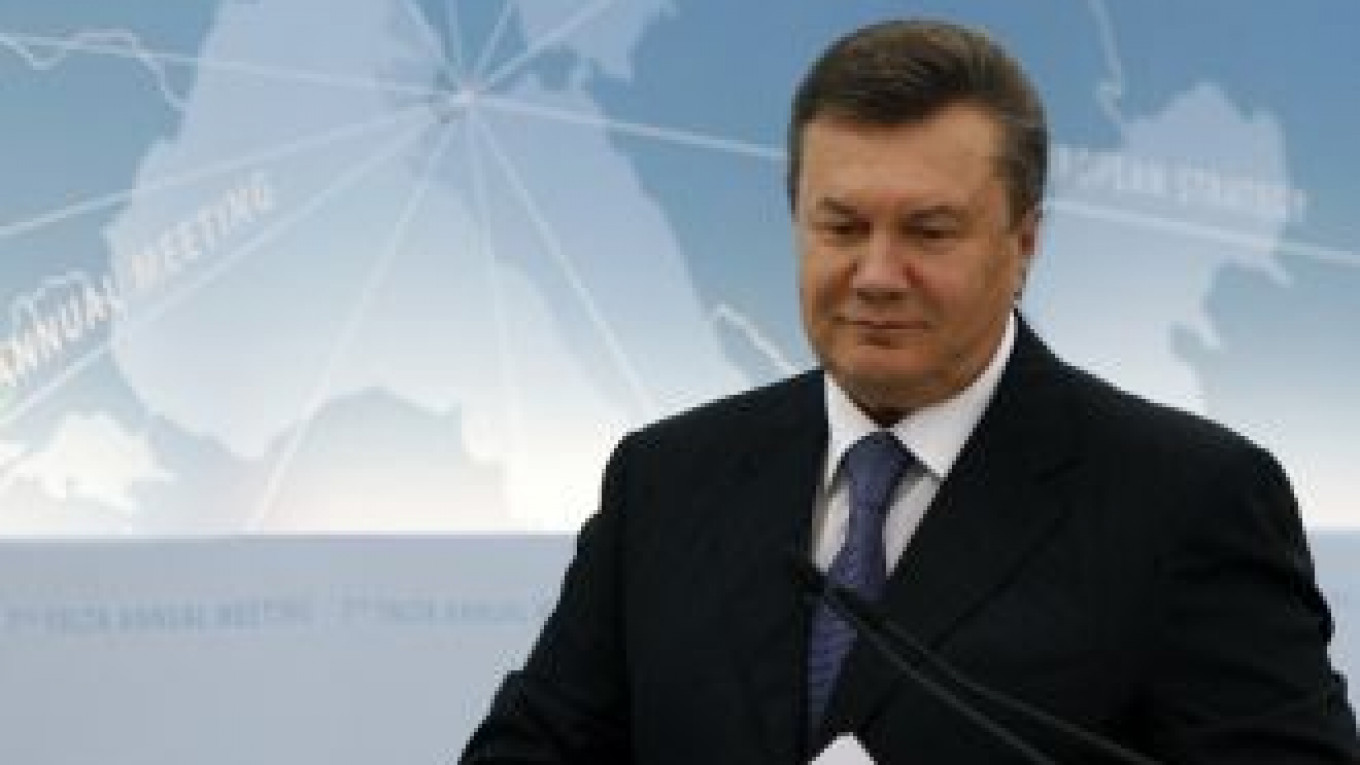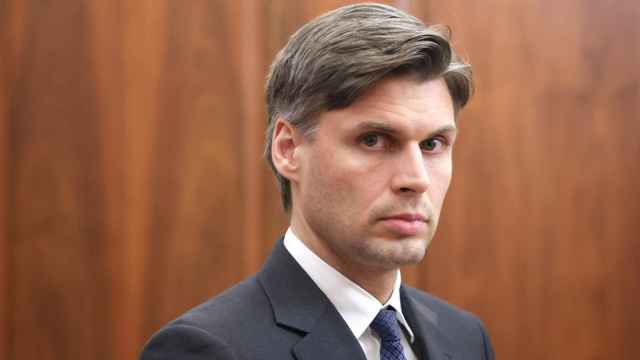KIEV — Ukraine's Constitutional Court strengthened President Viktor Yanukovych's control in the country by handing him key presidential powers lost to parliament in 2004.
Friday's landmark ruling pointed the way for Yanukovych, elected in February, to be able to choose his own government and rule in a presidential republic, similar to that in Russia, rather than in a parliamentary one.
Addressing the nation later, Yanukovych indicated that he would now take steps — possibly by a referendum — to mold a new constitution to fit the presidential republic model.
The court, upholding an appeal by Yanukovych's allies, overturned a 2004 law under which many presidential powers devolved to parliament. It said they should be returned to the presidency forthwith.
Yanukovych, speaking in Yalta, said it was the duty of all branches of power to follow the court's ruling.
In a later address to the nation, text of which was carried on his web site President.gov.ua, he said, "I support the idea of a referendum and the idea of a national constitutional assembly … to consolidate reforming the political system."
His main political opponent, former Prime Minister Yulia Tymoshenko, denounced the court's decision as "a usurpation of state power."
"Today will go down in history as the day of the destruction of democracy, the establishment of dictatorship," she told journalists.
Some analysts also saw the ruling as bad news for potential foreign investors.
"It was a crucial moment — the discrediting of the judicial branch of power — and investors will now think a long time about going into Ukraine where the courts are simply a part of the power structure," political analyst Mikhailo Pogrebinsky said.
The court's decision capped a steady consolidation of power by Yanukovych since he was elected in a bitter runoff against Tymoshenko.
Though the court's ruling was far from unexpected, it triggered confusion in political circles about the status of post-2004 laws and uncertainty about what to do next.
Parliament Speaker Volodymyr Lytvyn cautioned that the ruling would reduce the motivation for tough decision making by the pro-Yanukovych coalition. He said the parliament might be more reluctant to enact vital reform legislation such as a proposed new tax code.
The Yanukovych camp shrugged off opposition suggestions that the court's ruling effectively rendered illegitimate the present government.
"All the organs of power today are legitimate and today they must pull together and fulfill the decision of the constitutional court," said Olena Lukash, a deputy head of the presidential administration, Interfax reported.
Since Yanukovych came to power, his allies have pressed for him to recover presidential powers lost during the turmoil of the Orange Revolution in 2004, on the grounds that this would equip him to push through reforms.
They had asked the Constitutional Court to rule that there were irregularities in a constitutional law brought in during the 2004 upheaval that brought Yanukovych's predecessor, Viktor Yushchenko, to power.
Announcing that the court had found the 2004 law "not in compliance" with the constitution, the court's chairman, Anatoly Golovin, said "the institutions of power" should immediately restore presidential powers as they had existed before the changes.
A Message from The Moscow Times:
Dear readers,
We are facing unprecedented challenges. Russia's Prosecutor General's Office has designated The Moscow Times as an "undesirable" organization, criminalizing our work and putting our staff at risk of prosecution. This follows our earlier unjust labeling as a "foreign agent."
These actions are direct attempts to silence independent journalism in Russia. The authorities claim our work "discredits the decisions of the Russian leadership." We see things differently: we strive to provide accurate, unbiased reporting on Russia.
We, the journalists of The Moscow Times, refuse to be silenced. But to continue our work, we need your help.
Your support, no matter how small, makes a world of difference. If you can, please support us monthly starting from just $2. It's quick to set up, and every contribution makes a significant impact.
By supporting The Moscow Times, you're defending open, independent journalism in the face of repression. Thank you for standing with us.
Remind me later.






